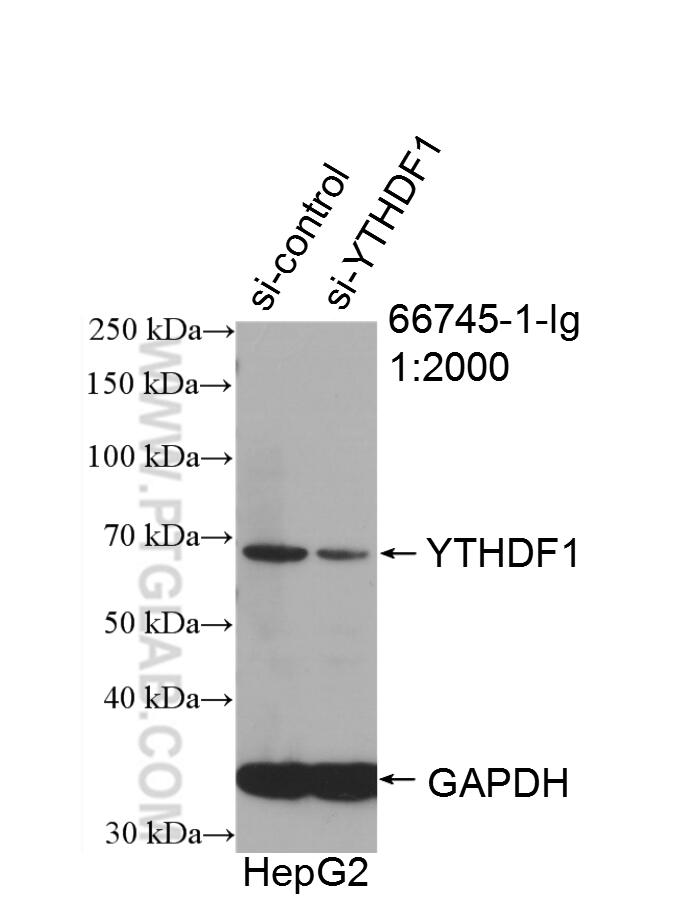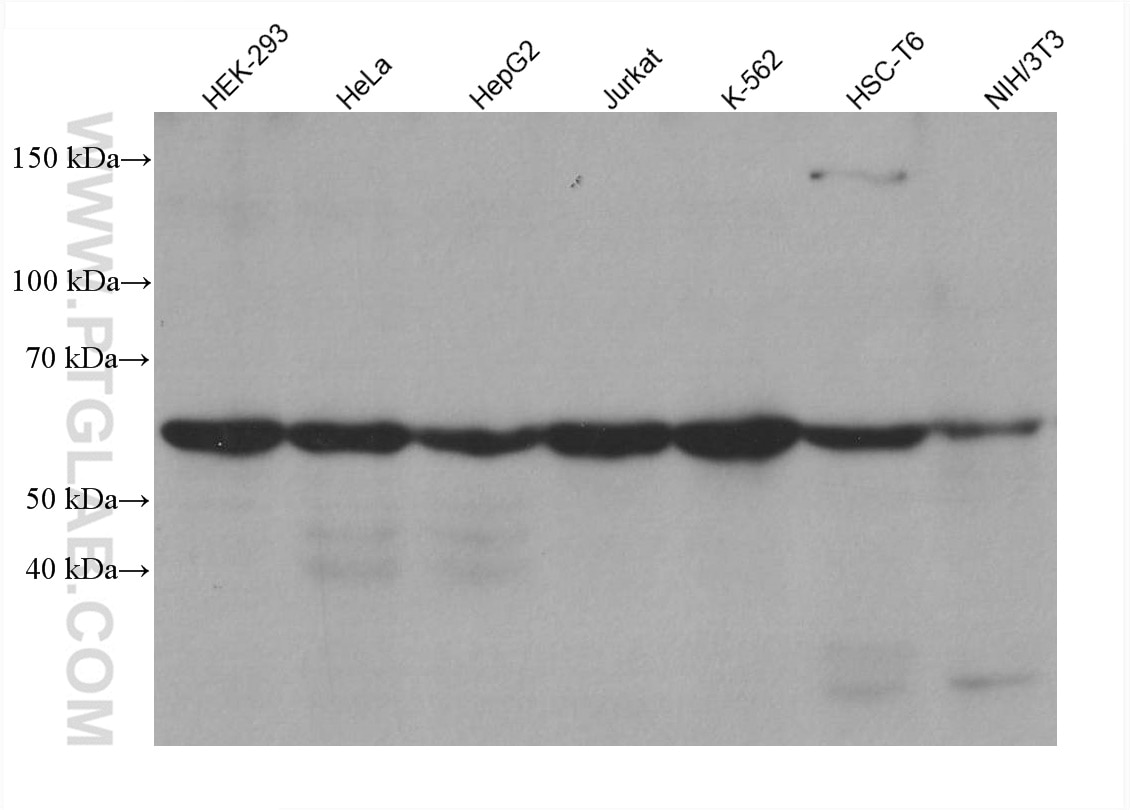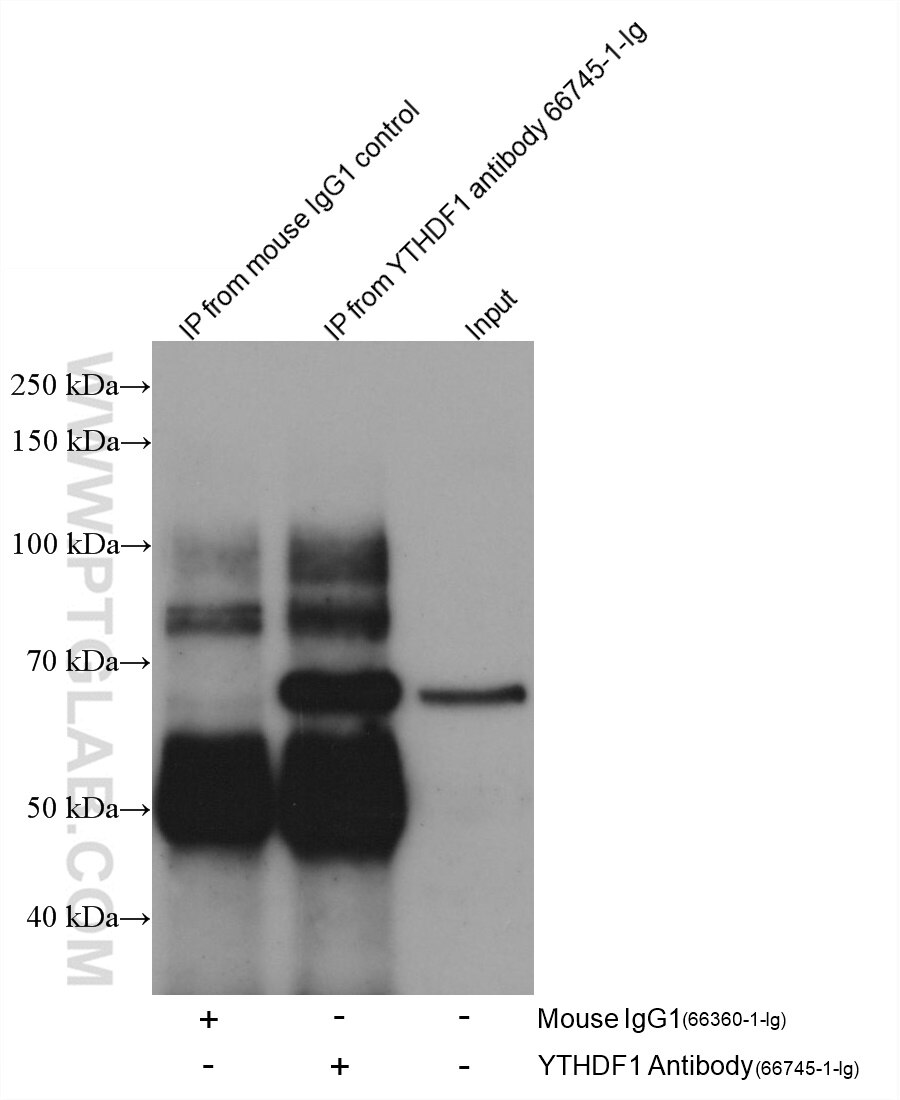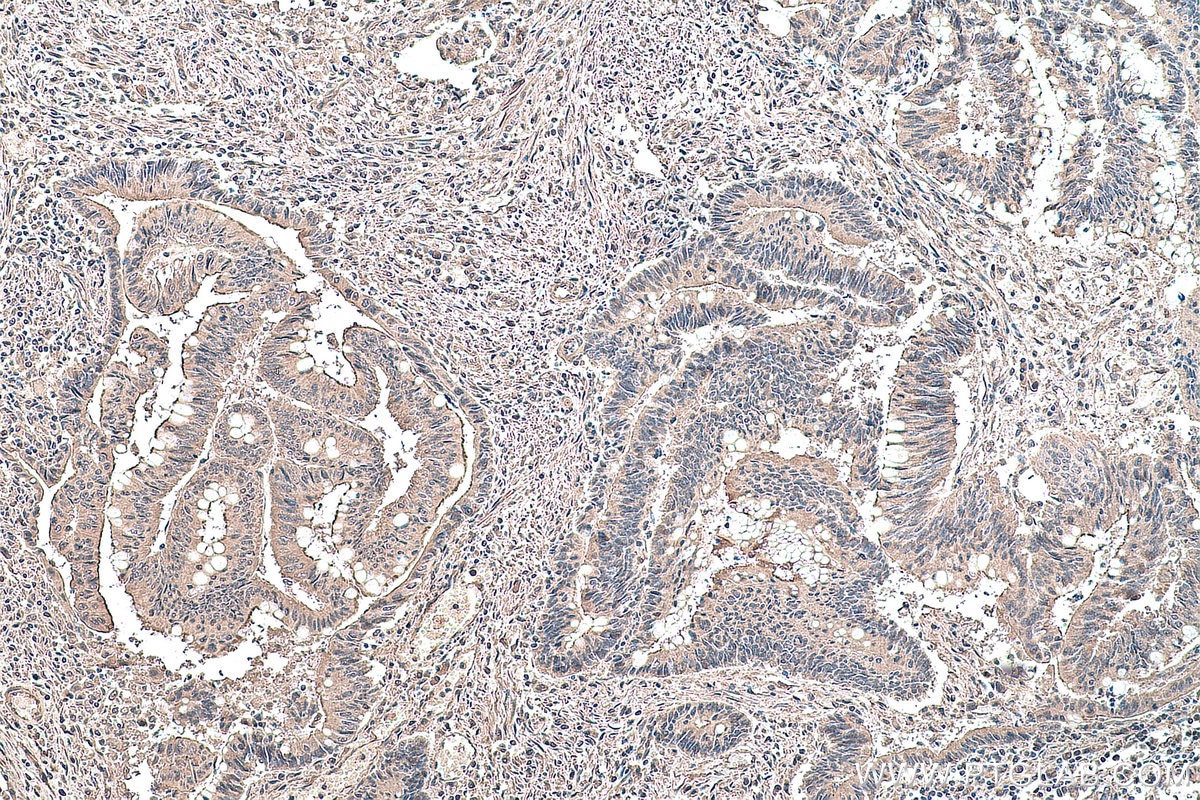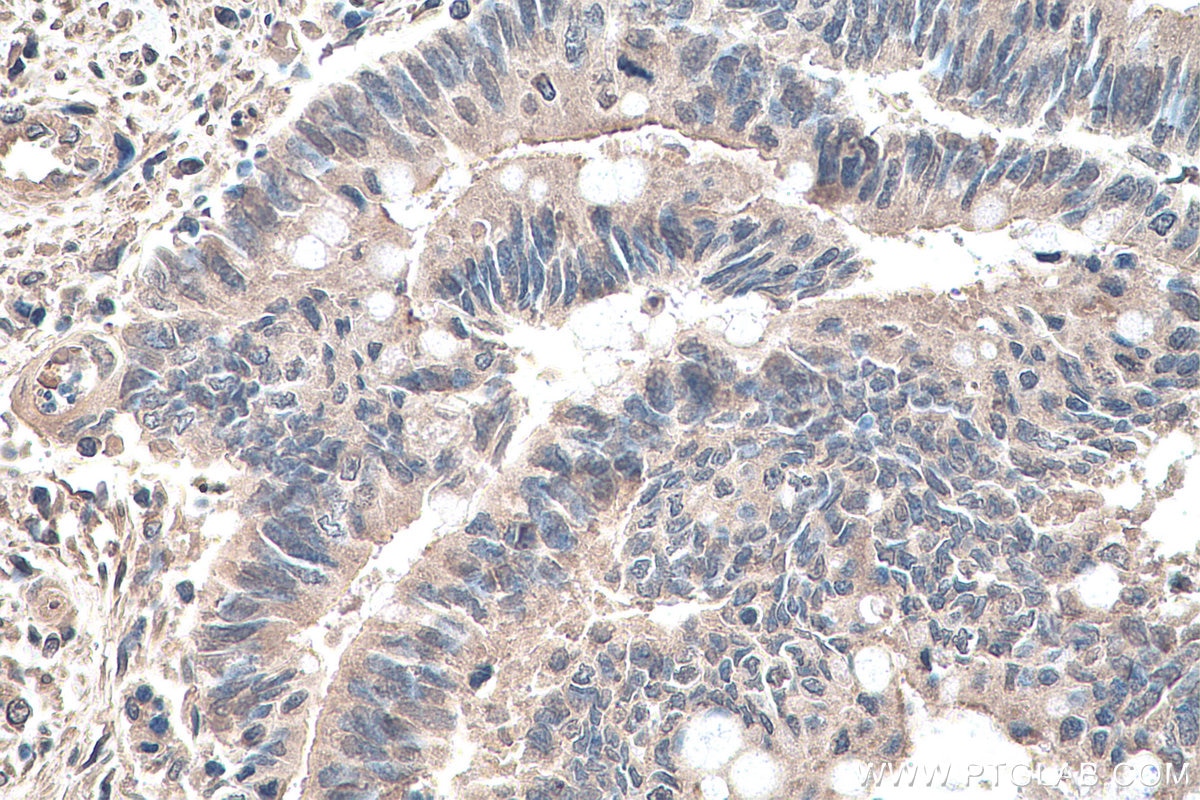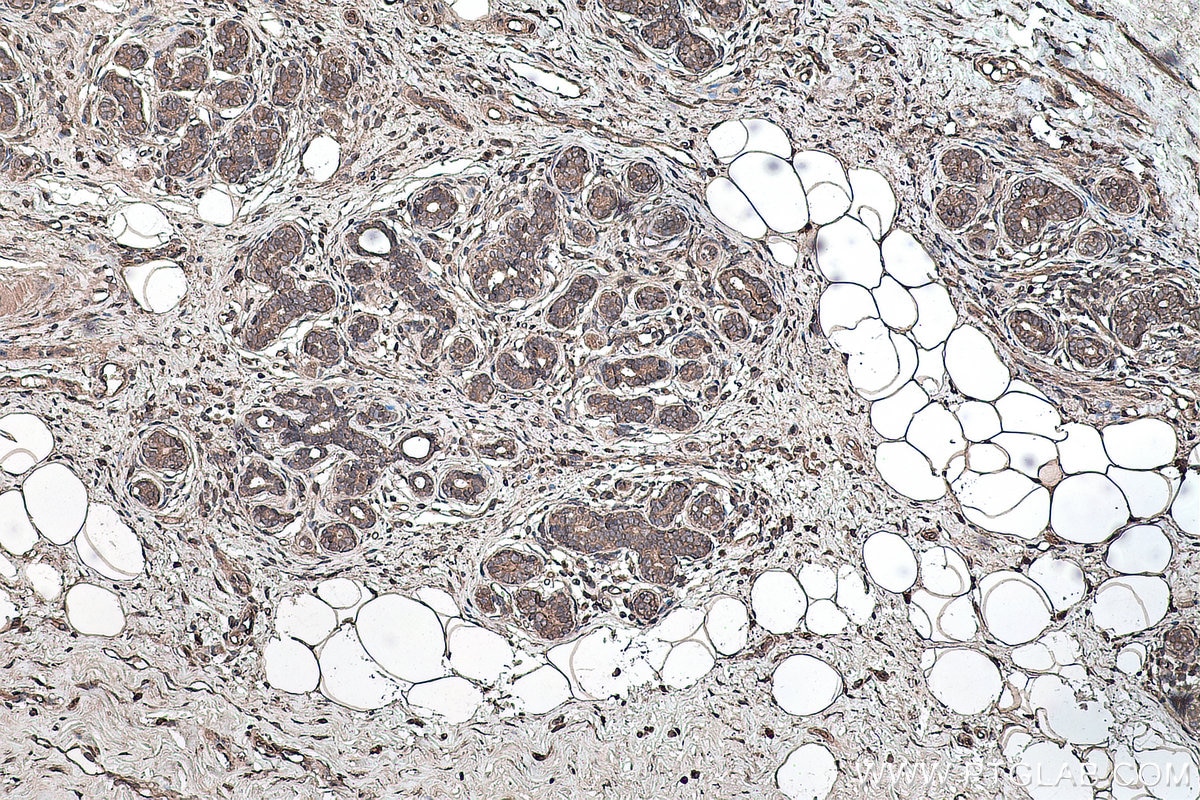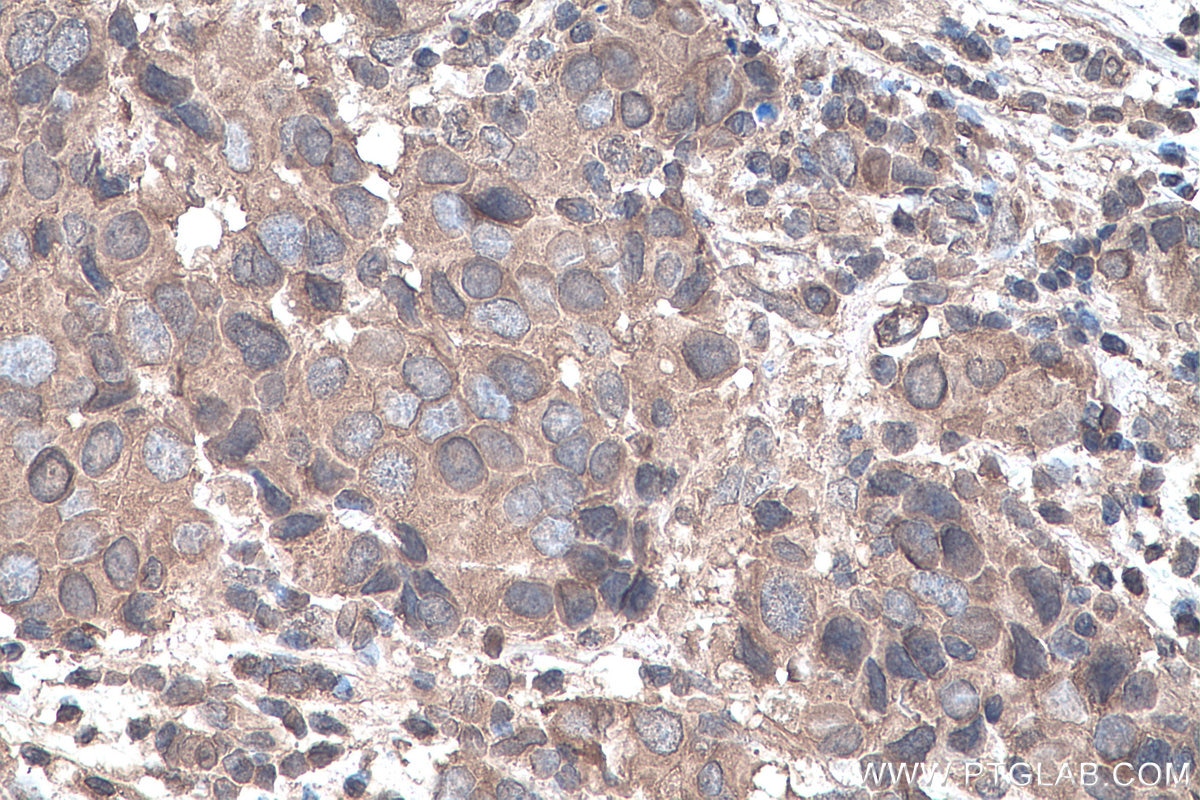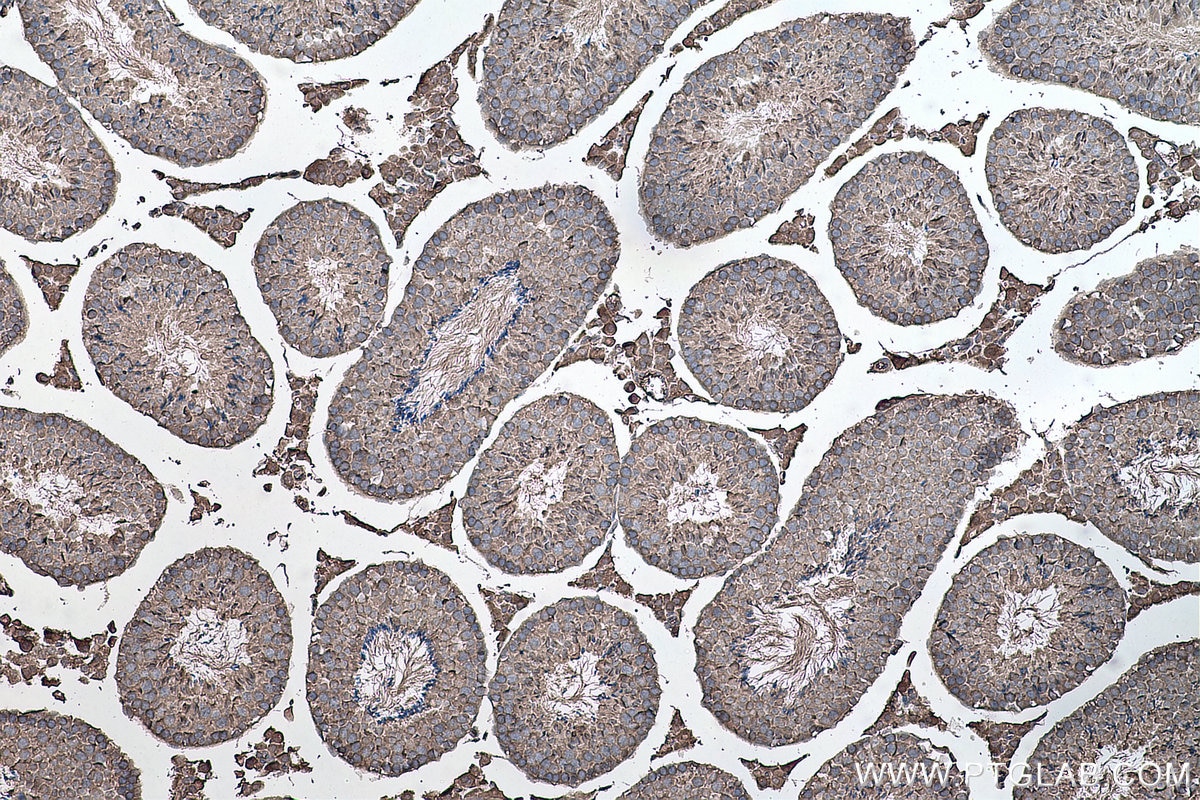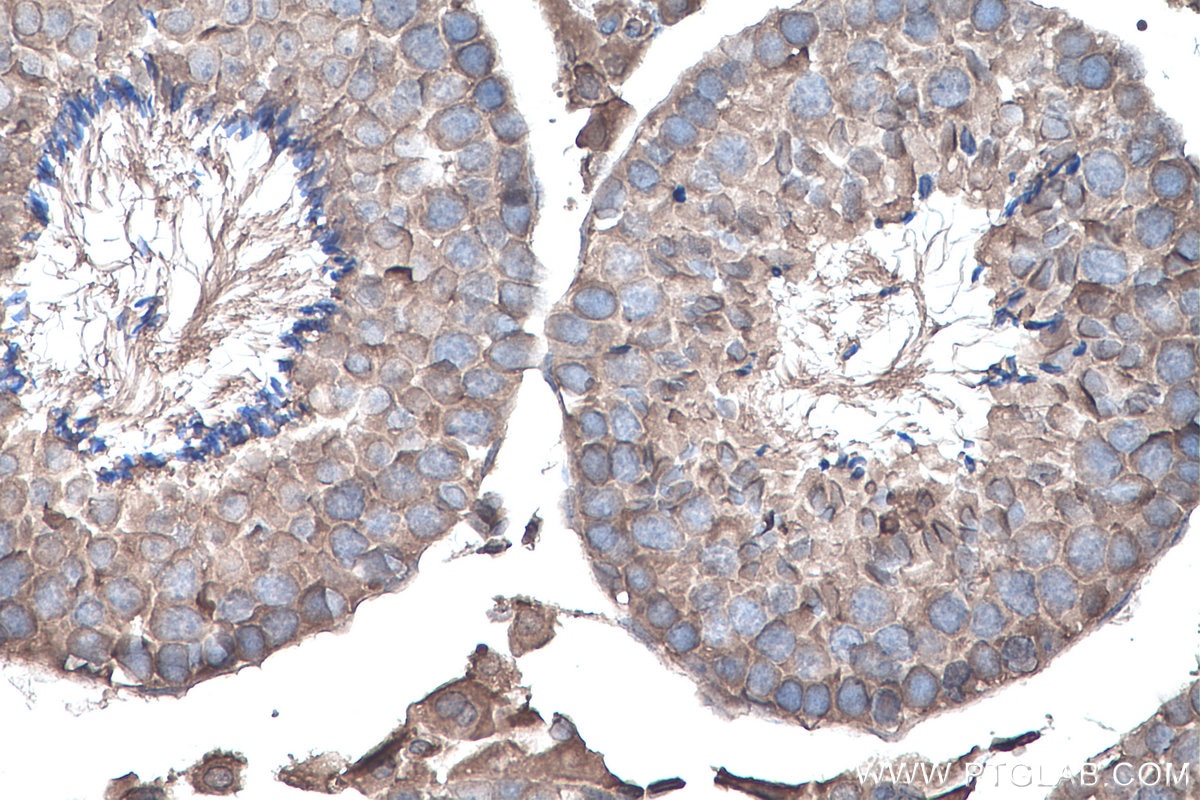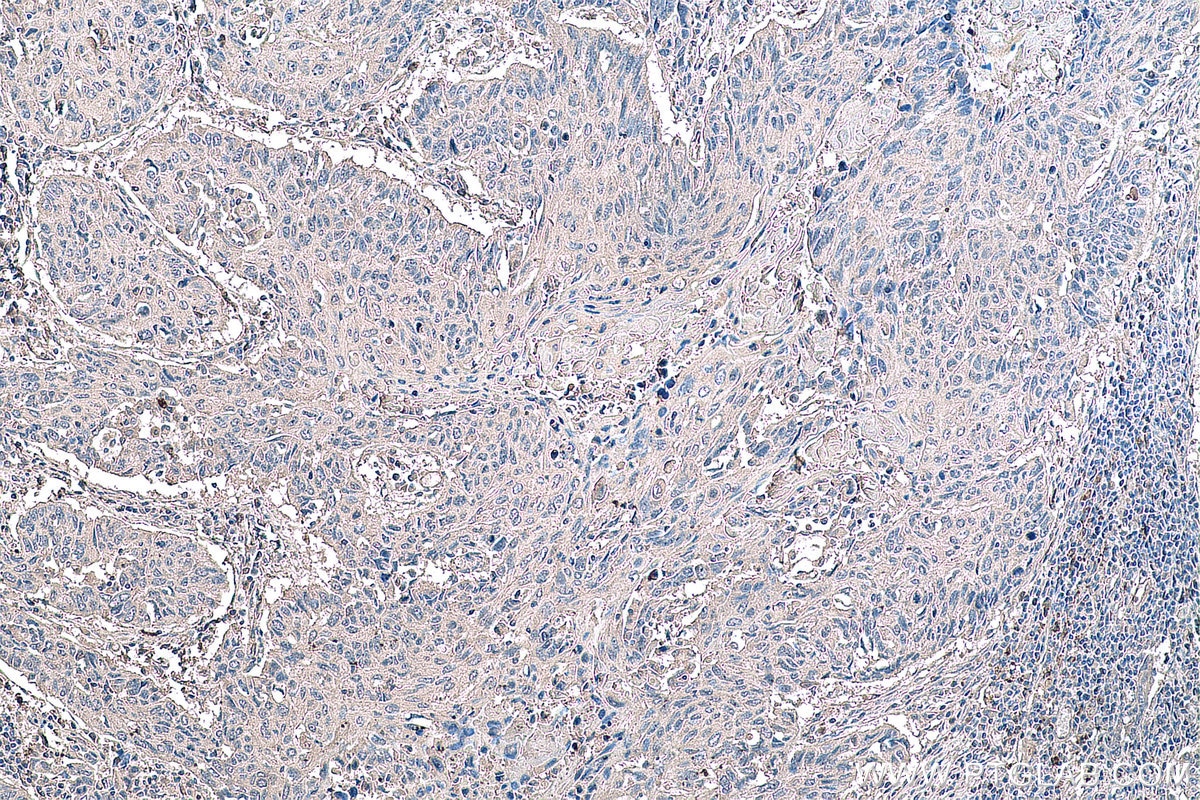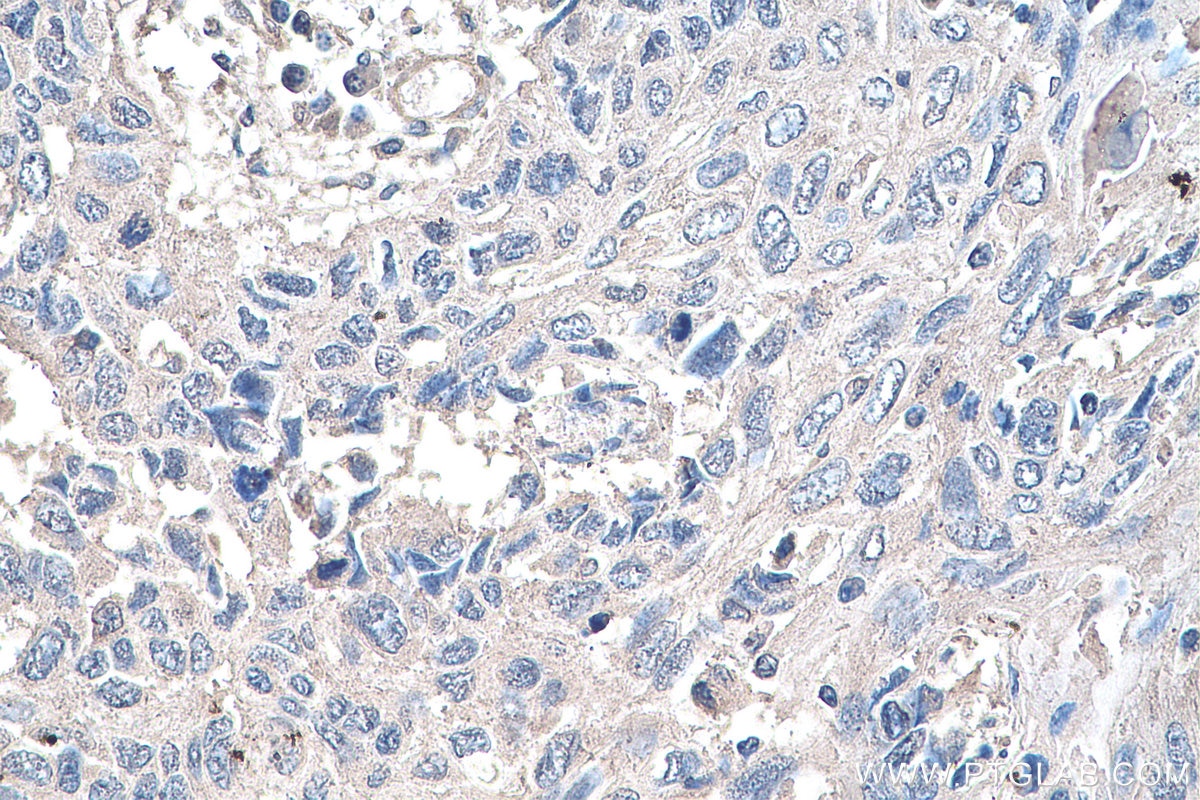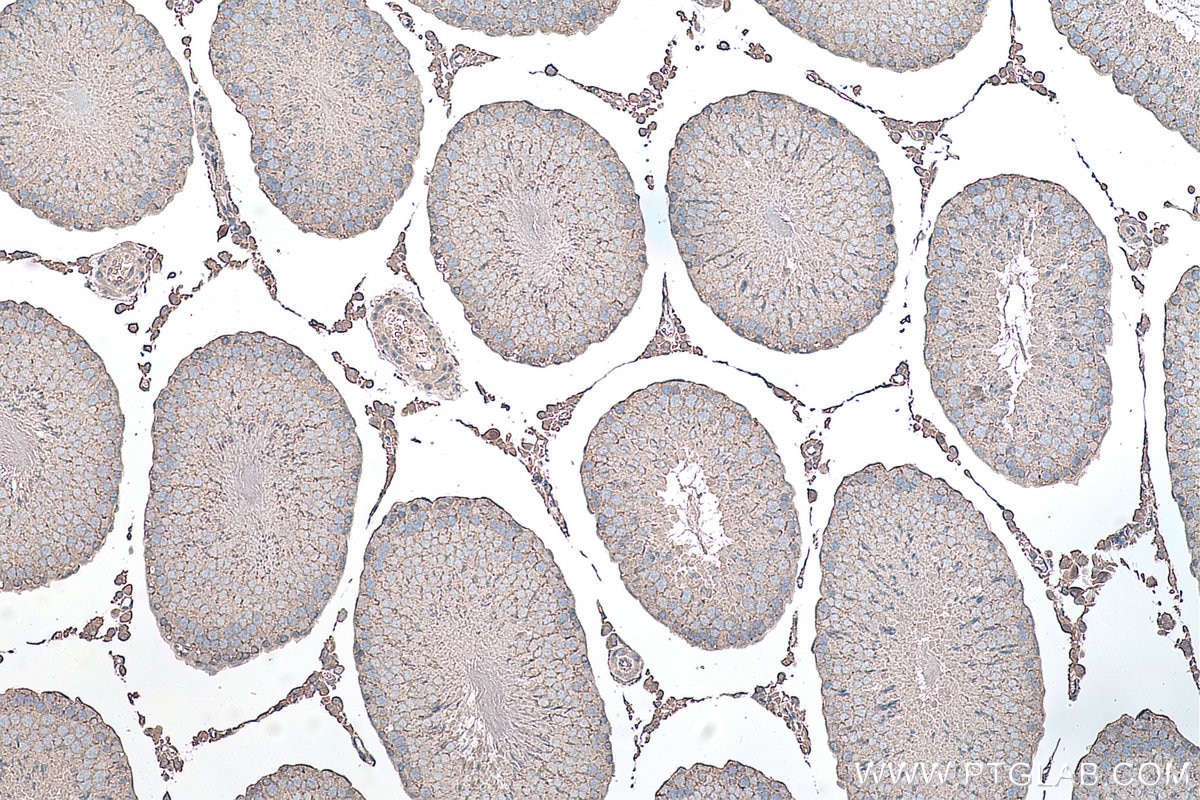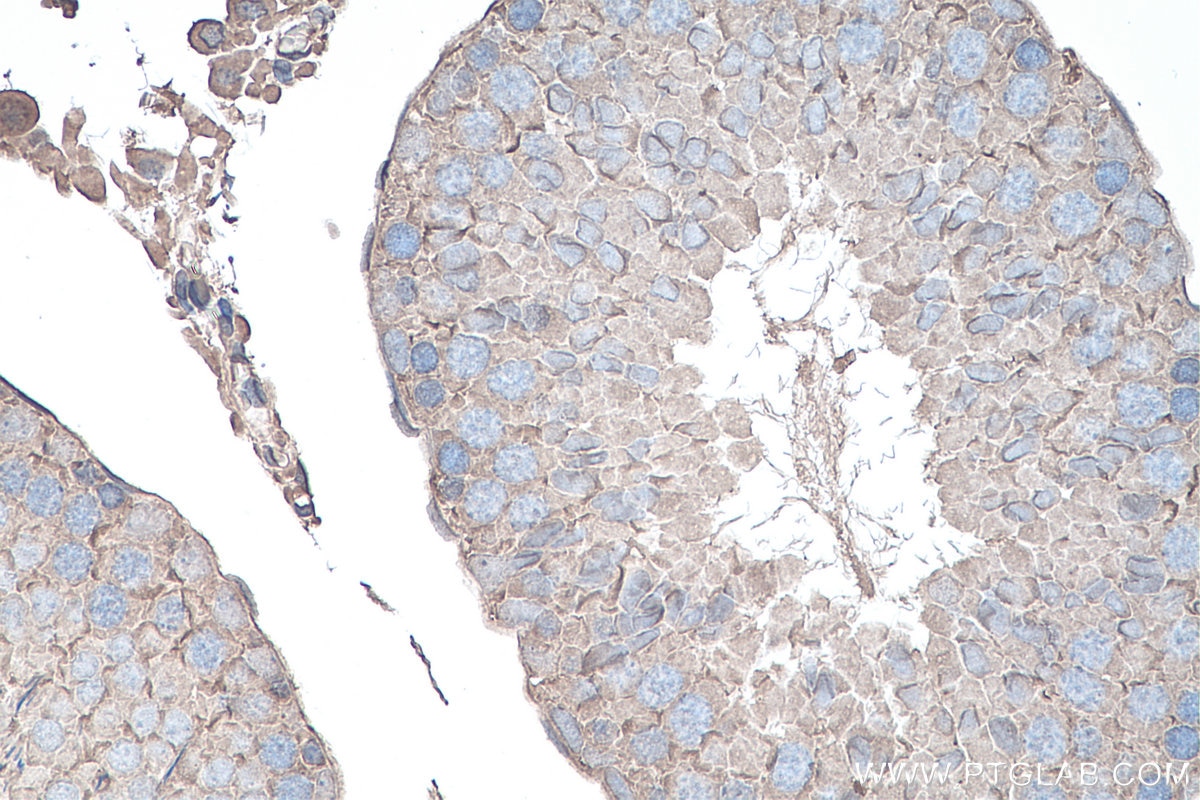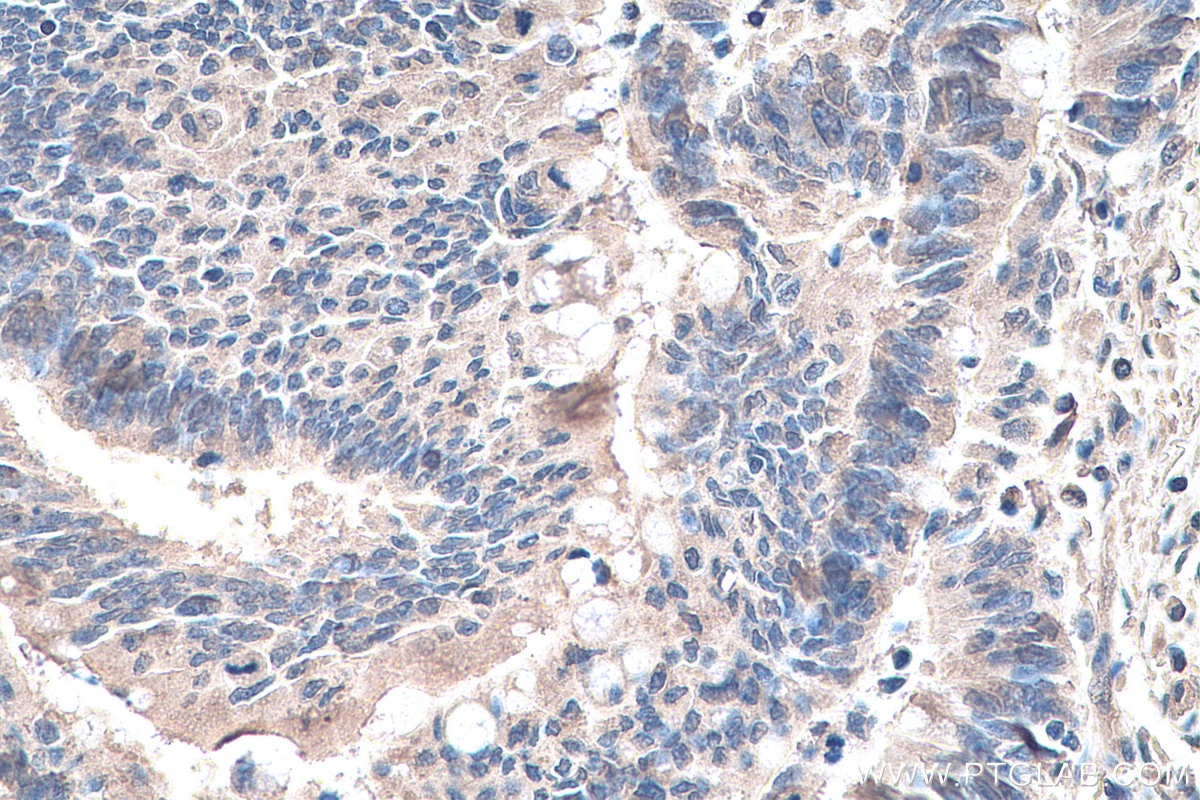Tested Applications
| Positive WB detected in | HEK-293 cells, HepG2 cells, HeLa cells, Jurkat cells, K-562 cells, HSC-T6 cells, NIH/3T3 cellls |
| Positive IP detected in | Jurkat cells |
| Positive IHC detected in | human colon cancer tissue, human breast cancer tissue, mouse testis tissue, rat testis tissue Note: suggested antigen retrieval with TE buffer pH 9.0; (*) Alternatively, antigen retrieval may be performed with citrate buffer pH 6.0 |
Recommended dilution
| Application | Dilution |
|---|---|
| Western Blot (WB) | WB : 1:1000-1:4000 |
| Immunoprecipitation (IP) | IP : 0.5-4.0 ug for 1.0-3.0 mg of total protein lysate |
| Immunohistochemistry (IHC) | IHC : 1:1000-1:4000 |
| It is recommended that this reagent should be titrated in each testing system to obtain optimal results. | |
| Sample-dependent, Check data in validation data gallery. | |
Published Applications
| KD/KO | See 7 publications below |
| WB | See 13 publications below |
| IHC | See 2 publications below |
| IF | See 4 publications below |
| CoIP | See 2 publications below |
| RIP | See 2 publications below |
Product Information
66745-1-Ig targets YTHDF1 in WB, IHC, IF, IP, CoIP, RIP, ELISA applications and shows reactivity with human, mouse, rat samples.
| Tested Reactivity | human, mouse, rat |
| Cited Reactivity | human, mouse, rat, pig |
| Host / Isotype | Mouse / IgG1 |
| Class | Monoclonal |
| Type | Antibody |
| Immunogen |
CatNo: Ag11633 Product name: Recombinant human YTHDF1 protein Source: e coli.-derived, PET28a Tag: 6*His Domain: 210-559 aa of BC050284 Sequence: VALTGVLSGNGGTNVNMPVSKPTSWAAIASKPAKPQPKMKTKSGPVMGGGLPPPPIKHNMDIGTWDNKGPVPKAPVPQQAPSPQAAPQPQQVAQPLPAQPPALAQPQYQSPQQPPQTRWVAPRNRNAAFGQSGGAGSDSNSPGNVQPNSAPSVESHPVLEKLKAAHSYNPKEFEWNLKSGRVFIIKSYSEDDIHRSIKYSIWCSTEHGNKRLDSAFRCMSSKGPVYLLFSVNGSGHFCGVAEMKSPVDYGTSAGVWSQDKWKGKFDVQWIFVKDVPNNQLRHIRLENNDNKPVTNSRDTQEVPLEKAKQVLKIISSYKHTTSIFDDFAHYEKRQEEEEVVRKERQSRNKQ Predict reactive species |
| Full Name | YTH domain family, member 1 |
| Calculated Molecular Weight | 559 aa, 61 kDa |
| Observed Molecular Weight | 60 kDa |
| GenBank Accession Number | BC050284 |
| Gene Symbol | YTHDF1 |
| Gene ID (NCBI) | 54915 |
| RRID | AB_2882093 |
| Conjugate | Unconjugated |
| Form | Liquid |
| Purification Method | Protein G purification |
| UNIPROT ID | Q9BYJ9 |
| Storage Buffer | PBS with 0.02% sodium azide and 50% glycerol, pH 7.3. |
| Storage Conditions | Store at -20°C. Stable for one year after shipment. Aliquoting is unnecessary for -20oC storage. 20ul sizes contain 0.1% BSA. |
Background Information
YTHDF1, also named as YTH domain-containing family protein 1 or C20orf21, is a 559 amino acid protein, which localizes in the cytoplasm. YTHDF1 specifically recognizes and binds N6-methyladenosine (m6A)-containing mRNAs, and promotes mRNA translation efficiency. M6A is a modification present at internal sites of mRNAs and some non-coding RNAs and plays a role in the efficiency of mRNA splicing, processing and stability. YTHDF1 acts as a regulator of mRNA translation efficiency: promotes ribosome loading to m6A-containing mRNAs and interacts with translation initiation factors eIF3 (EIF3A or EIF3B) to facilitate translation initiation. YTHDF1 exists two isoform and calculated molecular weight of isoforms are 61 kDa and 21 kDa.
Protocols
| Product Specific Protocols | |
|---|---|
| IHC protocol for YTHDF1 antibody 66745-1-Ig | Download protocol |
| IP protocol for YTHDF1 antibody 66745-1-Ig | Download protocol |
| WB protocol for YTHDF1 antibody 66745-1-Ig | Download protocol |
| Standard Protocols | |
|---|---|
| Click here to view our Standard Protocols |
Publications
| Species | Application | Title |
|---|---|---|
Angew Chem Int Ed Engl Small molecule-inducible and photoactivatable cellular RNA N1-methyladenosine editing | ||
Adv Sci (Weinh) Elevated SPARC Disrupts the Intestinal Barrier Integrity in Crohn's Disease by Interacting with OTUD4 and Activating the MYD88/NF-κB Pathway | ||
Nucleic Acids Res The N6-methyladenosine RNA-binding protein YTHDF1 modulates the translation of TRAF6 to mediate the intestinal immune response.
| ||
Cancer Res RUVBL1/2 Blockade Targets YTHDF1 Activity to Suppress m6A-Dependent Oncogenic Translation and Colorectal Tumorigenesis
| ||
EMBO Rep Severe fever with thrombocytopenia syndrome virus induces lactylation of m6A reader protein YTHDF1 to facilitate viral replication | ||
EMBO Rep N(6)-methyladenosine-binding protein YTHDF1 suppresses EBV replication and promotes EBV RNA decay.
|

